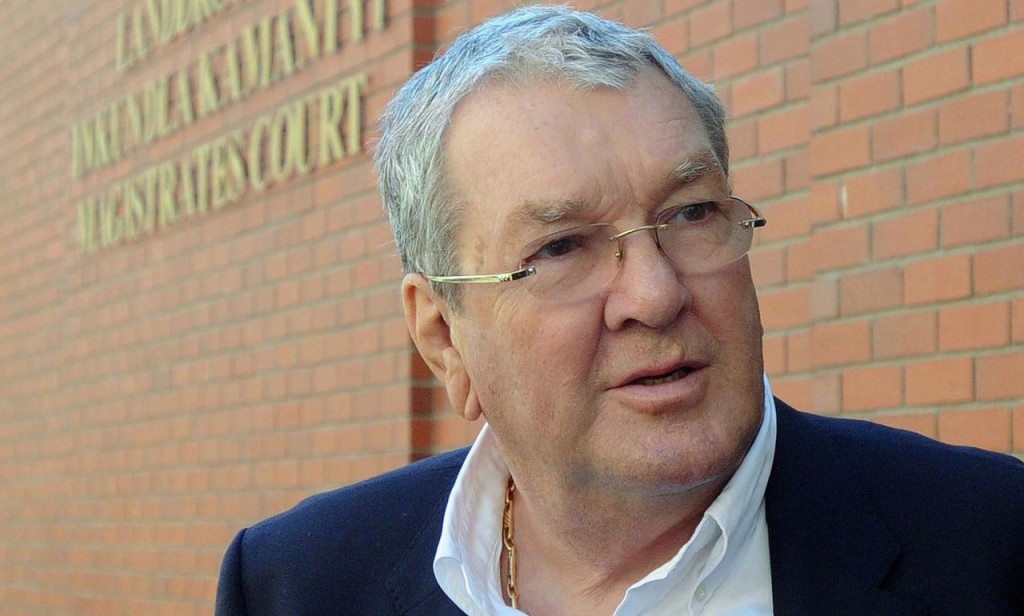
SOUTH AFRICA’S DEPARTMENT OF HOME AFFAIRS DECLARES KOUWENHOVEN AN UNDESIRABLE PERSON
Southern Africa Litigation Centre v Minister of Home Affairs and Others, Case No. 18052/2019, High Court, Western Cape Division, Cape Town
In 2019 the Southern African Litigation Centre (SALC) launched an application in the Western Cape High Court challenging the decision of the Department of Home Affairs (DHA) to grant a visitor’s visa to Augustinus Petrus Maria Kouwenhoven (Kouwenhoven). SALC also applied to the High Court to review the DHA’s failure to declare Kouwenhoven an undesirable person under the Immigration Act. An undesirable person does not qualify for a visa or a permit under the Immigration Act. Following a hearing of the case on 27 October 2020, the Department of Home Affairs on 5 November 2020 declared Kouwenhoven undesirable in terms of sections 30(1)(f) and (g) of the Immigration Act, and notified him of the decision to cancel his visitor’s visa. Kouwenhoven can now appeal the decision by the DHA. If he fails to make representations, within ten days, the cancellation of his visa will become effective.
SALC and LHR welcome the decision by DHA which reaffirms South Africa’s commitment to international justice by ensuring the country does not become a safe haven to alleged perpetrators of the most heinous crimes that the international community as a whole has a responsibility to prosecute. We remain concerned that the DHA extended his visitor’s visa after his conviction by the Netherlands Court of Appeal of complicity in war crimes committed in Liberia and Guinea during the presidency of Charles Taylor.
SALC is represented by Adv Lee Anne de la Hunt and Lawyers for Human Rights.
Background Information
Sections 30(1)(f) and (g) of the Immigration Act provide that foreigners may be declared undesirable if they are fugitives of justice or have previous criminal convictions without the option of a fine for conduct which would be an offence in South Africa.
During his presidency, Charles Taylor and his accomplices engaged in a reign of terror, including indiscriminately shooting civilians, bombing villages, raping women and children, killing babies, executions, beheadings, and other brutal acts of violence, in violation of article 3 of the Geneva Conventions. In May 2012, the presiding judge of the Special Court for Sierra Leone found that Taylor was responsible “for aiding and abetting as well as planning some of the most heinous and brutal crimes in recorded human history.” The Court sentenced Taylor to 50 years’ imprisonment.
On 21 April 2017, the Dutch Court of Appeal sentenced Kouwenhoven to a term of imprisonment of 19 years. The Court found that Kouwenhoven had sold and/or supplied weapons and ammunition to armed forces active in Liberia and Guinea and placed his staff and vehicles at the disposal of the armed conflict. He further encouraged members of the armed forces to plunder and destroy civilian homes and instructed armed forces on the use of heavy weapons. Kouwenhoven was also convicted of violating the Liberian Sanctions Regulations of 2001. The Netherlands Court based its jurisdiction on the principle of universal jurisdiction.
The Netherlands Court of Appeal noted that the Liberian Amnesty Scheme, which Kouwenhoven sought to rely on, was drawn up by the then government of Charles Taylor in the last days of his reign. The Court of Appeal found that both the TRC Act of Liberia and international law excluded the application of amnesties to war crimes and crimes against humanity. The Court concluded that even if Kouwenhoven was granted amnesty, that scheme did not prevent his prosecution in the Netherlands. On 18 December 2018, the Supreme Court of the Netherlands dismissed Kouwenhoven’s appeal against the Court of Appeal’s decision.
ISSUED BY THE SOUTHERN AFRICA LITIGATION CENTRE AND LAWYERS FOR HUMAN RIGHTS



